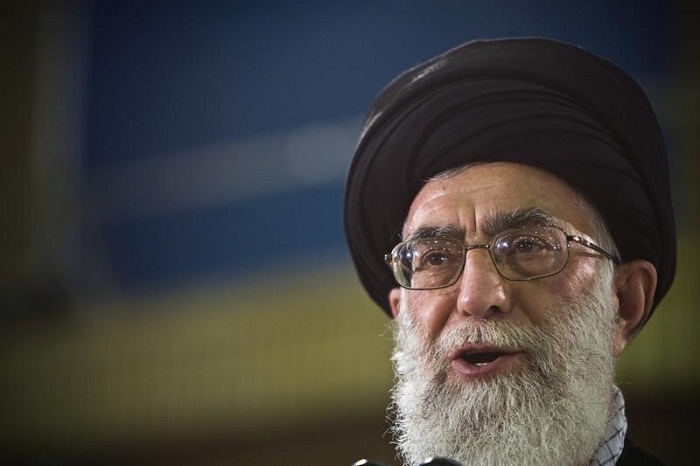His statements directly contradict those of moderate Iranian President Hassan Rouhani, who says his government is ready to hold talks with the United States on how to resolve the conflict in Syria, where the two countries back opposing sides.
“Negotiations with the United States open gates to their economic, cultural, political and security influence. Even during the nuclear negotiations they tried to harm our national interests.,” Khamenei was quoted as saying on his website.
“Our negotiators were vigilant but the Americans took advantage of a few chances,” he said.
Although he supported the last 18 months of negotiations, Khamenei has not publicly endorsed the nuclear agreement with the United States, Germany, France, Britain, China and Russia that settled a standoff of more than a decade.
The West feared Iran wanted to develop nuclear weapons, suspicions Tehran denies.
The agreement, which curbs Iran’s nuclear programme in exchange for crippling sanctions being lifted, was welcomed by Iranians who are keen to see their living standards improve and better relations with the rest of the world.
It was also a great political victory for Rouhani and his faction in Iran ahead of some key elections next year and as such has deepened the divide in Iran’s complex power structure between moderates and hardliners.
“CRITICAL SITUATION”
In his address to Revolutionary Guards Navy commanders, Khamenei said talks with the United States brought only disadvantages to Iran.
“Through negotiations Americans seek to influence Iran … but there are naive people in Iran who don’t understand this,” Khamenei was quoted as saying to the IRGC commanders, who are also running much of Iran’s military involvement in Syria.
Hundreds of Iranian troops arrived in Syria last month, sources told Reuters, where they will join government forces and their Lebanese Hezbollah allies in a major ground offensive backed by Russian air strikes.
The West dispute the aims of Russia’s air campaign, which is causing friction between Moscow and NATO.
“We are in a critical situation now as the enemies are trying to change the mentality of our officials and our people on the revolution and our national interests,” Khamenei told the Guards.
Khamenei often invokes an unspecified “enemy” when talking about Western powers, particularly the United States and Israel, which he suspects of plotting to overthrow the Islamic Republic.
His comments might invigorate the hardline lawmakers seeking the impeachment of Foreign Minister Mohammad Javad Zarif over shaking hands with U.S. President Barack Obama on the sidelines of the U.N. General Assembly.
“On and off the record, it was an accident,” Zarif said in an interview with New Yorker on Tuesday.
“It has already cost me at home. But everything I do costs me at home, so this is not an aberration.”
More about:
















































